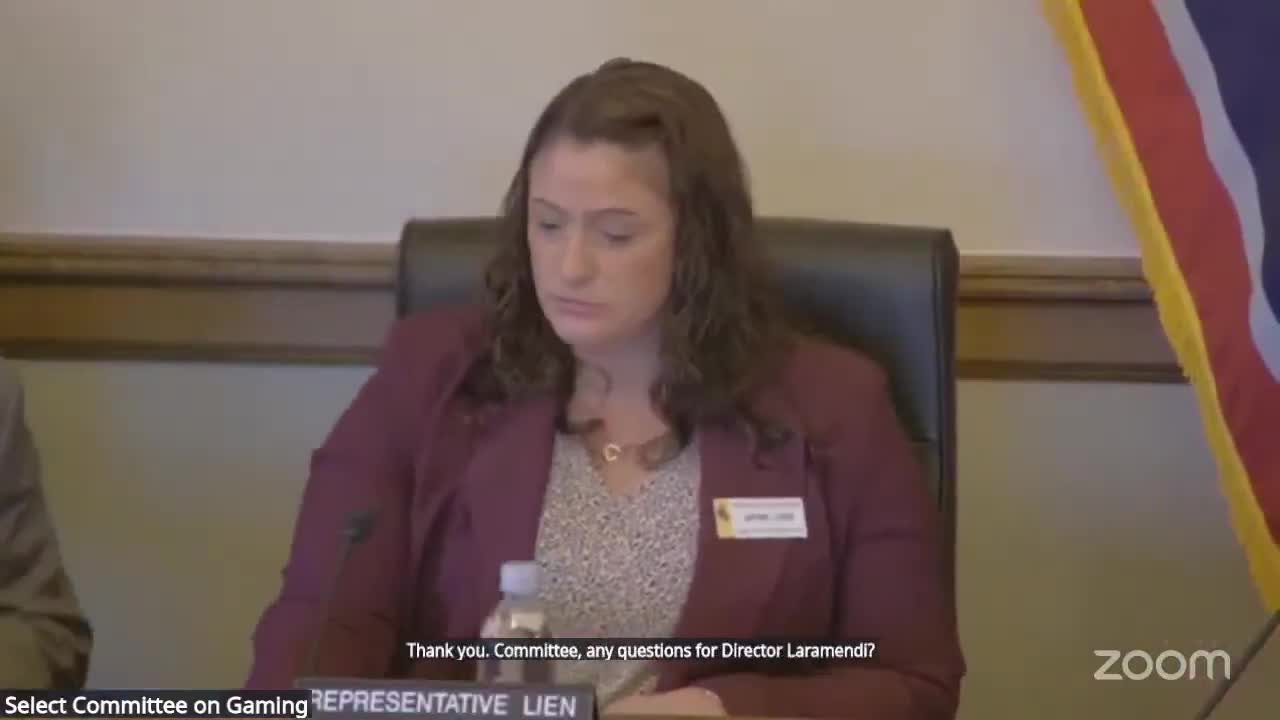Mayors, operators clash over skill‑game terminals in grocery stores; gaming director cites statutory limits
Get AI-powered insights, summaries, and transcripts
Subscribe
Summary
Local officials and operators told the Select Committee on Gaming on Oct. 14 that skill‑based amusement games are appearing in grocery stores, and the Wyoming Gaming Commission said statutory language tied to liquor licenses currently limits its authority to deny such locations.
Local officials and operators pressed the Select Committee on Gaming on Oct. 14 over the appearance of skill‑based amusement games in grocery stores, telling lawmakers the current statutory structure gives the Wyoming Gaming Commission limited grounds to refuse those installations.
What happened: multiple local leaders and industry witnesses described grocery stores that have obtained package‑liquor licenses and then applied to the Gaming Commission for skill‑game licenses. Director Nick Laramendi explained that under Wyoming statute an “establishment” eligible for skill games includes businesses that are licensed to sell liquor, and that modern liquor licensing is often issued to the entire address rather than a discrete corner of a store. "If they check the boxes and they don't have criminal histories and they meet the definition of a liquor licensed establishment, the commission shall issue them a license," Laramendi told the committee.
Local officials' concerns: Tim Hancock, mayor of Riverton, said he was surprised to find skill‑game terminals visible to the public when he entered a local grocery store and urged the commission and legislature to stop installations in non‑age‑restricted locations. Mayor Patrick Collins of Cheyenne and Mayor Leah Juarez of Mills described community incidents and public-safety impacts at locales that changed owners or expanded gaming activity; Mills' mayor said the city had seen violent incidents after a facility changed hands and that local authorities had to push the operator to improve security.
Industry views and options: Operators and trade groups offered alternatives to an across‑the‑board moratorium. Jonathan Downing and Catherine Wilkinson of Cowboy Skill said their members do not place games in grocery stores and asked the committee to consider a narrow fix — for instance, allowing skill games only in establishments that serve alcohol for on‑premises consumption rather than those that only sell packaged liquor. Mike Mosher of the Wyoming State Liquor Association proposed sideboard tests (sales-percentage thresholds) that would exclude primarily retail liquor or big‑box stores from eligibility while preserving options for bars, restaurants and manufacturers with tasting rooms.
Commission capacity and notice: Director Laramendi told the committee the commission currently inspects about 350 locations with four inspectors on the road and that a surge of new applications from as many as 3,000 liquor-license holders would create substantial staffing pressure. He said the commission had not previously done routine community notification for skill-game applications but would start sending notice to cities and counties effective immediately while statutory changes are considered.
Next steps: committee members discussed several options — targeted moratoria, separate bills for HHR and skill games, statutory changes to narrow the types of liquor licenses that are eligible and improved notice rules — and asked LSO and the commission to help craft options. The committee did not enact a moratorium limited to skill games during the session but signaled interest in more tailored statutory fixes.
